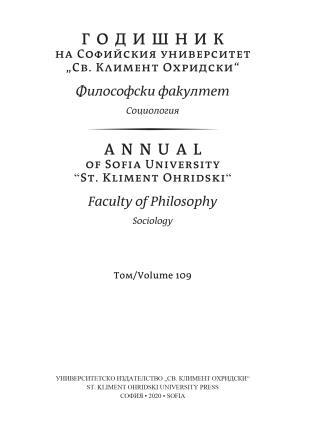Делегирани бюджети и образователни неравенства
Delegated Budgets and Educational Inequalities
Author(s): Svetlomir ZdravkovSubject(s): Social Sciences, Sociology, Methodology and research technology, Sociology of the arts, business, education
Published by: Софийски университет »Св. Климент Охридски«
Keywords: education; inequalities; quantitative analysis
Summary/Abstract: For several consecutive PISA studies, Bulgarian high school students are last in the EU in terms of reading, math and science tests. The main problem for the Bulgarian educational system is that it is one of the most polarized ones. These results are a strong indicator that the school network in the country is socially stratified. The analysis is trying to reveal what is the role of delegated budgets (the main mechanism for financial redistribution in the educational system) in the process of stratification and increasing inequalities. For the purposes of the analysis are used several kind of empirical data. Data from questionnaire survey with students, qualitative data from interviews with school principals and teachers, as well the quantitative data from matriculation exams. The findings of the analysis show that the marketization process, which began with delegated budgets in Bulgaria in the mid-2000s, is linked with increasing inequalities and stratification between schools. It is argued that there are at least two parallel economic logics emerged in different strata of the education system, which is result from the functioning of the schools in heterogeneous social contexts. The two economic rationalities have great consequences. At the top strata are the schools with high educational attainment and prestige, competition leads to better education and various new learning opportunities. In the lowest educational strata in the system are the schools with low prestige and low attainment. There, the competition operates on a completely different principle, unlike the "elite" schools. The economic-educational rationality is towards reduction of the formal educational requirement towards the schoolchildren, making it easy for them, "pushing" the students up to 12th grade for financial reasons.
Journal: Годишник на Софийския университет „Св. Климент Охридски“. Философски факултет. Социология
- Issue Year: 109/2020
- Issue No: 1
- Page Range: 60-84
- Page Count: 25
- Language: Bulgarian

